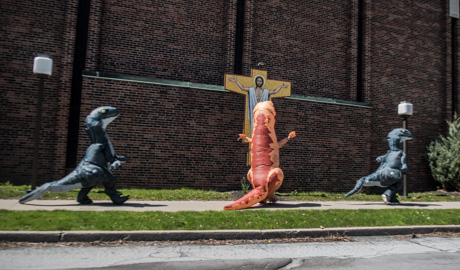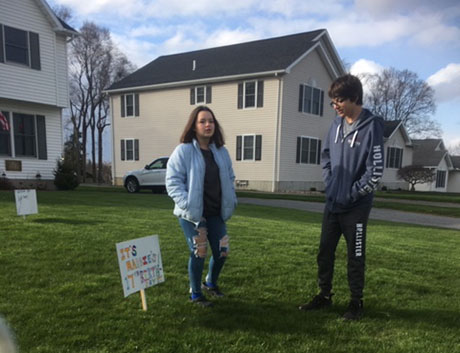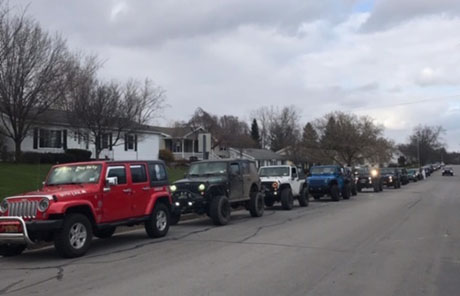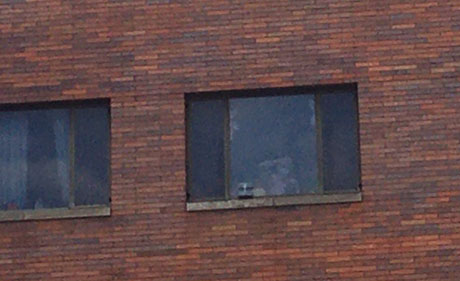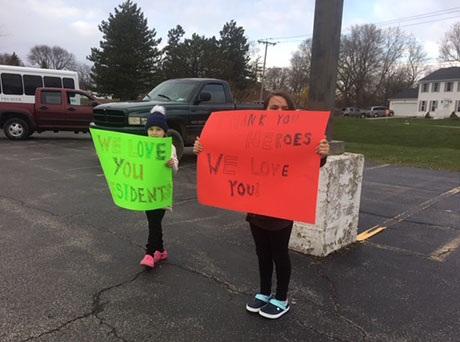Graham Manufacturing eschews layoffs while plant closed, returns PPP loan after Treasury changes rules for publicly traded companies
Graham Manufacturing, a publicly traded company, made the decision at the start of the coronavirus pandemic to stop almost all manufacturing operations but keep its entire workforce on the payroll -- including 320 of its Batavia-based employees.
"We continue to pay wages and full benefits to all of our employees," said Jeff Glajch, Graham's chief financial officer.
Keeping employees home helps keep them and the community safe, Glajch said, but also means the company's expenses are exceeding revenue.
When the Payroll Protection Program was announced, with rules that allowed any company with 500 or fewer employees to apply for forgivable loans of up to $10 million to help cover wages and salaries for workers, Graham applied for a loan. There was no stipulation in the first set of rules released by the Treasury Department that discouraged publicly traded companies from accepting the loans.
Graham received a $4.6 million loan.
"We felt at the time it was a legitimate application based on the guidance by the SBA (Small Business Administration)," Glajch said. "Last Thursday, the Treasury changed the guidance on publicly traded companies and suggested that publically traded companies should not receive loans. We felt based on the new guidance that we would return the funds and the funds have been returned, based on this guidance, well before anyone reached out to us."
The loan was repaid along with interest for the two weeks the company possessed the funds.
The Treasury changed the rules for loan eligibility after news reports about publicly traded companies such as Shake Shack and Ruth’s Chris Steak House received loans. The reports helped raise awareness of well-capitalized companies receiving taxpayer money at a time when many small businesses were unable to tap into the initial pool of $350 billion because the first round of loans was oversubscribed.
Congress has since added another $480 billion to the stimulus package but critics have maintained that publicly traded companies getting loans when they have access to financial resources out of reach to very small businesses is against the spirit of the program.
Glajch said he understands the concern. He said many people view the spirit of the program to help very small companies, particularly restaurants and local shops, who have been hard hit by closures. He said many people view companies with one to 50 employees as needing the most help, but the actual rules allow companies with fewer than 500 employees to apply for the loans.
Those companies with fewer than 500 employers include some of Graham's competitors and those competitors are not necessarily publicly traded. Even though those companies are not publicly traded it doesn't mean they aren't well-capitalized, Glajch said.
"My concern is that we have competitors that are privately held with 200 to 300 employees that have access to capital and, especially grants, that we don't," Glajch said. "There are ma-and-pop's that are struggling and they need this funding and if that was the intent, that was great. It makes sense to fund them and but not our competitors who are much larger."
Besides the 310 employees locally, Graham employs another couple dozen people in other locations.
Graham could have remained operational. It is an essential business according to New York's pandemic rules. It makes equipment essential to the oil industry and to the Navy. Glajch said the company decided it was more important to keep employees safe than to keep the manufacturing plant open. The firm scaled back to about 20 employees working to fulfill its Navy contracts.
"This is a stressful time for everyone and one of the things we didn't want was for our employees to be concerned about was their financial condition," Glajch said. "This is obviously tough of families so we made the decision to continue to pay our employees. It's important for our employees but it's also important for the community. If they aren't making any money they don't have the ability to spend and that impacts the community also."
Graham is phasing in the return of its workers.
"This is a pretty dramatic change in safety practices and cleaning and sanitation practices," Glajch said. "We've put social distancing rules in place and are slowly bringing people back. We thought bringing back everybody at once was too aggressive. We want to make sure our employees are trained and working in a way that meets all of those safety criteria."
Much of Graham's customer base is the oil industry and coronavirus hits at a time when Russia and other OPEC-block countries were in an oil production dispute, driving down the price of oil, and with people traveling less, oil prices have declined sharply on top of that dispute. So far, that shift in the market hasn't affected Graham, but Glajch said "that will take more time to fully play out."
Investors were informed up-front of Graham's plans to stop production but keep paying employees and there has been no push back from investors, Glajch said.
"Investors understand what we're doing," Glajch said. "They understand we're burning cash by keeping people on payroll. I think at the time we had the conversation, no one wondered how long this would be going on, that they felt this would be finite, like a month or two, and they understood what we were doing."










